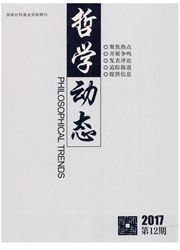

 中文摘要:
中文摘要:
本文从对一元价值谓词“好”、“坏”和二元价值谓词“更好”之间的关系出发,首先回顾了偏好逻辑中用二元价值谓词定义一元谓词的各种方案。然后,文章介绍了vanBenthem利用语境从一元谓词定义二元谓词的工作。文章着重分析了在这一背景下语境的概念和性质,并提出了两种逻辑的方法刻画语境。本文重点给出了语境的模态语言、语义模型,并对涉及语境变化的三条有效规则进行了深入讨论。
 英文摘要:
英文摘要:
This paper is concerned with the relationship between the unary predicates "good", "bad" and the binary predicate "better". We first review some proposals in the research field of preference logic, showing that most of those works define "good" or "bad" from "better". Then we introduce van Benthem's idea of defining "better" in terms of"good" and context, and we illustrate that the notion of context plays an important role in such discussions. Finally, a formal modal language and semantics are presented to discuss the properties of context, and to represent the three principles concerning changes of context. The paper ends with some open problems.
 同期刊论文项目
同期刊论文项目
 同项目期刊论文
同项目期刊论文
 期刊信息
期刊信息
